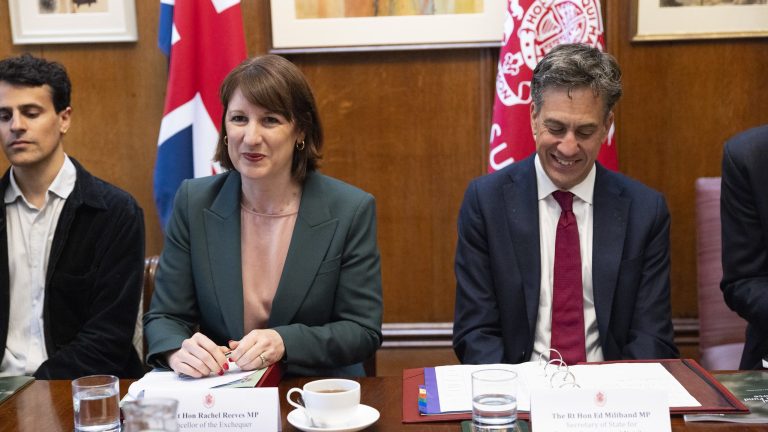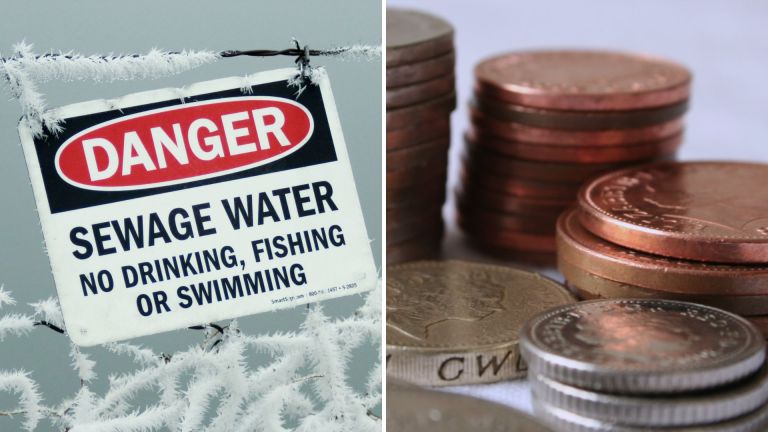New powers are also set to be introduced to restrict flavours and ensure that manufacturers use plainer packaging, so that vaping is less likely to appeal to children. They will also have to be moved away from products like sweets, so they won’t catch kids’ eyes so easily.
Rachel de Souza, the children’s commissioner for England, said: “I am absolutely delighted that the government has listened to the appeals that I, and many others, have made to ban disposable vapes. I also welcome the decision to create far tighter restrictions on marketing and flavours of vapes so they aren’t so appealing to children and young people.
“When I asked children a couple of years ago about all aspects of their health and wellbeing, I was shocked and concerned to hear from children as young as 12 who told me that vaping was normalised among their peers – even on school premises. This announcement will help tackle that issue and I know that many children and parents will be extremely relieved.”
Deborah Arnott, chief executive of Action on Smoking and Health, similarly welcomed plans to stop vaping appealing to children, saying: “The government is taking vital powers to control the design and promotion of e-cigarettes to prevent them being promoted to children.
“The comic characters, bright colours and sweet names so appealing to children are unacceptable for products that should only be promoted to adults as an aid to quitting smoking.”
The government is set to bring in new fines for shops in England and Wales which sell vapes illegally to children. Trading standards officers will have the power to act immediately on underage tobacco and vape sales.
A total of £30m will be made available to enforcement agencies, including Border Force, HMRC and trading standards, to implement the measures.
Arnott added: “Banning disposables when they are so widely used will require strict enforcement to be effective, as illegal vapes are already flooding the market even before a ban.
“At the turn of the last century illegal tobacco was out of control, just as illegal vapes are now but the number of illegal cigarettes on sale in the UK fell by 80% between 2000 and 2021 after a comprehensive cross government strategy was implemented.
“It’s excellent news that the government has updated its strategy for tackling illicit tobacco, but we are yet to see the same strategic approach applied to vapes. Throwing money at the problem is not enough, stopping illegal vapes at the border, inland and at point of sale requires a thought through intelligence-led strategy.”
Vaping alternatives including nicotine pouches will also be outlawed for children who are increasingly turning to these “highly-addictive substitutes”.
The plans come following an eight-week consultation on creating a smokefree generation and tacking youth vaping, which was launched in October last year.
There was overwhelming support among responses to the government’s disposable vape ban, with nearly 70% of parents, teachers, healthcare professionals and the general public supportive of the measure.
The Consumer Choice Center has criticised the UK government’s latest announcement to introduce bans on disposable vapes, limit vaping flavours, and ban tobacco products for people born on or after January 1, 2009.
Fred Roeder, managing director of the Consumer Choice Center, believes it will meal the UK loses its global leadership in cutting smoking rates.
He said: “For over a decade now, the UK’s approach was the global gold standard on combatting smoking rates – Rishi’s giga ban package will be the last nail in the coffin of the UK’s harm reduction leadership.
“Smoking rates are already at historic lows. This shows that previous policies have worked. Stricter enforcement of age restrictions at the point of sale is a good idea. However, banning entire categories of innovative products is going exactly in the wrong direction.
“As a former smoker who was able to quit thanks to vaping, I can only say that the planned ban on disposables will make it harder for people to quit. 5% of UK adults currently use disposable vapes – do we really want to risk that many of them pick up smoking again?”
Dr Ruth Sharrock, clinical lead for Tobacco Dependency at the North East and North Cumbria NHS integrated care board, added: “Removing disposable vapes from our toolkit would make it harder to support our most vulnerable smokers.
“Older smokers, people with learning disabilities and others can find it hard to use refillable products straight away. The immediacy of a disposable vape makes such a difference. It is as if we are taking a cigarette out of their hand and replacing it with a vastly safer product.”
Get the latest news and insight into how the Big Issue magazine is made by signing up for the Inside Big Issue newsletter
Smoking is the UK’s “biggest preventable killer”. It causes around one in four cancer deaths and leads to 80,000 deaths per year.
Victoria Atkins, the health and social care secretary, said: “Almost every minute of every day someone is admitted to hospital with a smoking-related disease. And it costs society £17bn each year – putting a huge burden on our NHS.
“That’s why we are driving the way forward through our smokefree generation plan, which will prevent our children from starting this dangerous habit.
“The health advice is clear: vapes should only ever be used as a tool to quit smoking. But we are committed to doing more to protect our children from illicit underage vaping, and by banning disposable vapes we’re preventing children from becoming hooked for life.”
It is estimated that vapes help between 50,000 and 70,000 people quit smoking each year. As part of the government’s Swap to Stop scheme, almost one in five adult smokers in England will be given access to a vape kit alongside behavioural support to help them quit.
Dr Ian Walker, executive director of policy at Cancer Research UK, said: “If this legislation is passed, the UK government should ensure local smoking cessation services are adequately funded, and those trying to quit are given as much support as they need to help them do so.
“We are also pleased to see that the government is moving forward with the tobacco age of sale legislation, applying to all tobacco products, taking us one step closer to creating the first smokefree generation.”
Speaking more widely about the government’s plans to end smoking, Arnott said it is a“vital stepping stone on the path to ending the smoking epidemic once and for all”.
“The government’s strategy is the right one: stop smoking initiation, support smokers to quit by using the most effective methods, while protecting children by curbing youth vaping,” she said.
“Smoking has caused more deaths than obesity, alcohol, road traffic accidents, illegal drugs and HIV combined and each year kills more people than COVID did at the height of the pandemic. Smoking is the silent killer that hides in plain sight. Ending this scourge on society is long overdue.”
The ban has also been welcomed by environmental campaigners. Five million disposable vapes are thrown away each week, up from 1.3 million from last year. Over a year, this is equivalent to the lithium batteries of 5,000 electric vehicles.
Laura Young, a Scottish climate activist who has been campaigning to ban disposable vapes, said: “I’m delighted that we are going to see a ban on disposable vapes across the UK. This has been a growing issue for many years now, and it is long time that we tackle it head on.
“What is even more important is that we are doing this united, as the UK, and putting in place legislation which will help to alleviate the issues with youth vaping, public health, and the environmental poor practice across England, Wales, and Scotland.
“Now is the time to work hard to get the best legislation possible, and ensure that the vaping industry steps up to the challenge to provide support for adults to quit smoking without detriment to young people or the environment.”
Libby Peake, head of resource policy at Green Alliance, said: “This ban can’t come soon enough, not only for the health of future generations, but also for the health of the planet. The government has followed the science, and this decision will have many environmental benefits. Valuable lithium ion batteries will stop going to waste or winding up as litter, along with all the casings that have been blighting our environment for too long.”
David Fothergill, chairman of the Local Government Association’s community wellbeing board, added: “Disposable vapes are inherently unsustainable products, meaning an outright ban remains the most effective solution to this problem.
“Single use vapes blight our streets as litter, are a hazard in our bin lorries, and are expensive and difficult to deal with in our recycling centres. We look forward to working with the government and others to enforce this ban as well as ensure plans for a smokefree generation are a success.”
Do you have a story to tell or opinions to share about this? We want to hear from you. Get in touch and tell us more.









